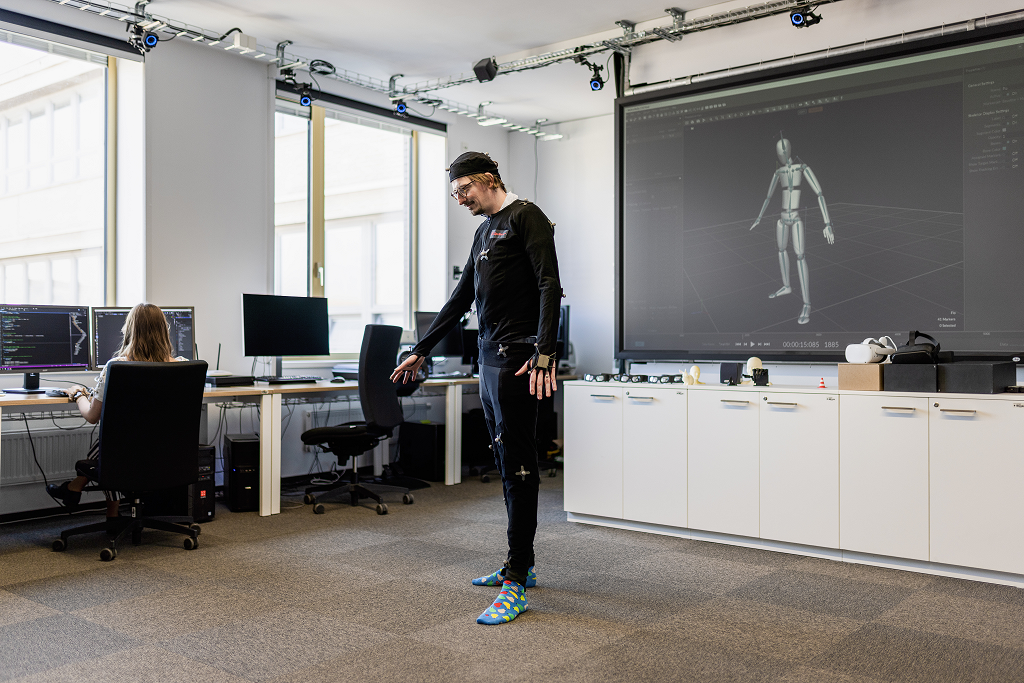Human-Machine Interaction and Simulation Laboratory
The HCI and Simulations Laboratory (HSL) was established with the goal of designing and developing new methods and tools for interacting with computer systems. In recent years, there has been a noticeable trend among researchers and private companies to develop and test new prototypes—gesture interfaces, voice commands, including neural interfaces (such as Neuralink) for controlling complex processes in real-time. The applications of such developments can be seen in manufacturing, the automotive industry, medicine, defense, entertainment, and more. This is a scientific niche in which there is limited activity in Bulgaria, and there is a need for more in-depth research, development, and prototypes that could lead to technological transfer and the creation of market products. These developments may include the design and construction of simulators, training systems, and systems for preparation in the aforementioned fields.
Goals and Objectives
Goals
- To study, evaluate, and describe current methods and to experiment with new approaches for human-computer interaction (HCI), including gesture-based, voice-controlled, and virtual user interfaces.
- To research and describe methods, approaches, scenarios, and applications within the aforementioned fields.
- To analyze current trends in the design, development, and operation of training simulators (hardware) and simulation systems (software).
- To explore how artificial intelligence (AI) methods can be integrated into the design of such systems and interfaces, examining best practices and pitfalls both locally and internationally.
- To develop new algorithms in the field of artificial intelligence.
- To attract young researchers – PhD students and postdoctoral fellows – to join the laboratory’s research team.
Objectives
- Collaboration with industry sectors (transportation, manufacturing, aviation, mechanical engineering, defense, healthcare, etc.).
- Conducting tests, developments, and research projects based on industry requirements.
- Performing regular equipment and personnel evaluations.
- Participating in projects under the National Science Fund, European Horizon Europe programs, ESA open calls, and more.
- Contributing to scientific events such as seminars and conferences.
- Publishing research results in scientific journals and conference proceedings.
- Establishing partnerships with external organizations.

Independence
The laboratory was established as an independent unit within the Faculty of Mathematics and Informatics at Plovdiv University “Paisii Hilendarski.” It was founded by DECISION No. 18 from Protocol No. 6 of the Faculty Council of FMI on April 24, 2024. The team’s ambition is to develop it to achieve a university-wide level and, in the future, a national level.
Location
The laboratory is located opposite Hall 346 at the Faculty of Mathematics and Informatics in the New building of Plovdiv University “Paisii Hilendarski”

Equipment
Initially, the laboratory can be equipped with apparatus provided by the founders—acquired through projects and not utilized for other purposes. Subsequently, equipment such as microcontrollers, licensed software, hydraulic cylinders, virtual reality headsets, sensors, and more will be purchased using targeted funding from awarded projects as well as donations from the industries mentioned above.

